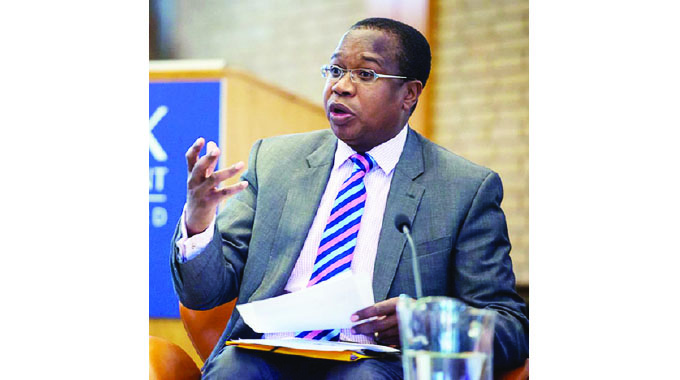
THE Government has condemned the abuse of the beverages sugar content tax and other tariff measures by some businesses that deliberately misinterpret clear policy propositions for profiteering while unjustifiably punishing innocent consumers.
While consumption taxes are charged on the consumption of goods and services and are generally imposed at the time of the transaction, some businesses have gone overboard to disproportionately apply these taxes beyond their intended purpose, sparking an outcry from consumers.
Examples include the recent obscene retail price increases of soft drinks, alcoholic beverages and a range of value-added dilute juices. Others have gone to the extent of wrongly applying the tax on raw sugar.
In a statement yesterday, Finance, Economic Development and Investment Promotion Minister, Professor Mthuli Ncube, said the application of the sugar tax, in particular, has been misconstrued by businesses, and expressed the Government’s disdain for the recent price increases purportedly attributed to it.
The Government has already made a commitment to initially ring-fence the revenue generated from the Beverages Sugar Content Tax for therapy and procurement of cancer equipment for cancer diagnosis.
As a sign of such commitment, Prof Ncube said Treasury will soon be commissioning the machines purchased therefrom, and that subsequent procurements will be advised accordingly.
Notwithstanding the above positives, he said the Government was disturbed by the unjustifiable increase of prices for some beverages, which is unreasonably attributed to the impact of the Beverages Sugar Content Tax.
“Such behaviour by the responsible manufacturers, wholesalers and retailers is a dear demonstration of incorrect interpretation and, in some cases, profiteering.
“Government has, at its disposal, the prices charged by such operators prior to the introduction of the tax, the maximum impact of the beverage sugar content tax on the beverages in question and the expected prices thereof,” said Prof Ncube. “The Beverages Sugar Content Tax has been misconstrued as a levy on sugar when it is applied differently. The tax is, rather, applied on the sugar content in beverages (drinks) specified in current legislation,” the minister explained.
“Government wishes to categorically state that the tax does not apply to sugar in general, hence, should not be misinterpreted as affecting ordinary consumption. Producers of sugar, are, thus, not affected.”
Specifically, Prof Ncube clarified that the sugar tax is applied to the “added sugar” in specified beverages, excluding natural sugar, to encourage responsible consumption of sugar contained therein.
“It is scientifically proven that excessive consumption of added sugar in beverages is linked to increased risk of non-communicable diseases,” he said.
“The revision of the tax to 0090.001 per gram is dear testimony of the commitment by the Government to carefully consider and adopt constructive input from relevant stakeholders.
“Government is also aware that some producers cannot immediately reconfigure their production processes, whilst there is a commitment to reduce the sugar content by other manufacturers.”
On the other hand, he urged consumers to also make the conscious choice to consume responsibly given the negative impact of excessive consumption of sugar on their health status.
“Government, in observance of the principles of transparency and accountability, takes this opportunity to enlighten the general public on the broad tax policy considerations that have traditionally guided the development of the taxation system, in particular, consumption-based taxes,” said Prof Ncube.
He said it was disheartening that some businesses tend to frustrate progress at a time when the implementation of the National Development Strategy (NDS1) demands the recognition and adoption of bold and transformative measures to underpin the drive towards the attainment of our Vision 2030.
One of these measures includes the introduction of the Beverages Sugar Content Tax aimed at addressing quality of life and health matters through mobilising revenue that would be channelled towards such causes, he added.
“Government has recently noted with concern, the imposing nature of the input from some stakeholders on recently introduced tax measures, notwithstanding the distinct role between stakeholders and policymakers,” said Prof Ncube.
The minister said the targeted tax instruments were critical across the globe and may be used to influence or re-direct such consumption, especially, where consumption is deemed or scientifically proven to impose negative externalities to Society.
He further noted that the development and refinement of tax policy measures has always been a result of a consultative process involving business, consumer organisations, civil society, academia, Government agencies, and the general public, among others.
“Such consultations are in view of the fundamental roles of stakeholders to exercise the Constitutional right to influence public policy in a responsible manner, with a view to develop this great nation,” said Prof Ncube.
“Government will continue to consult, as wide as possible, with relevant stakeholders, with a view to ensure enactment of evidence-based policies.”
He also reiterated the Government’s commitment to the implementation of measures targeted at the timely realisation of the NDS1 objectives, being conscious of President Mnangagwa’s mantra: “Nyika inovakwa nevene vayo/Ilizwe lakhiwa ngabanikazi balo”
Herald




